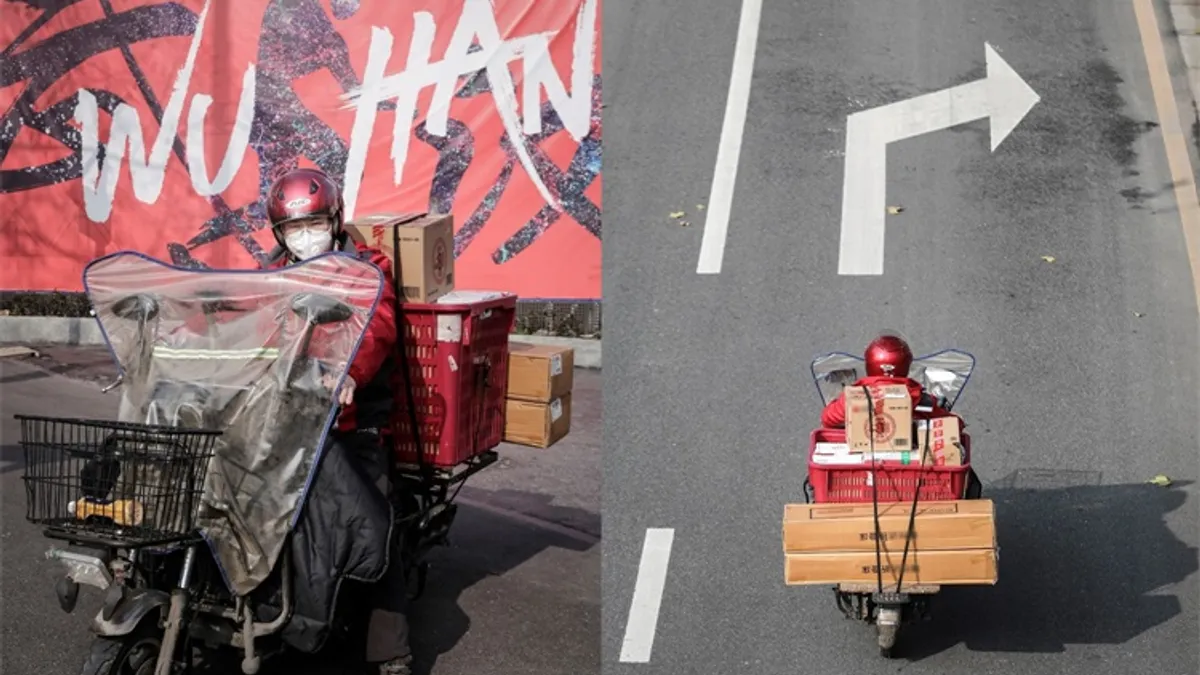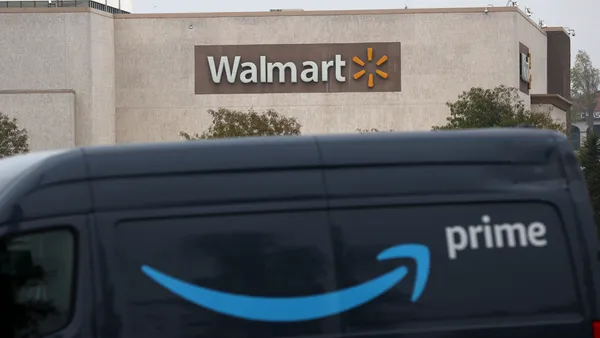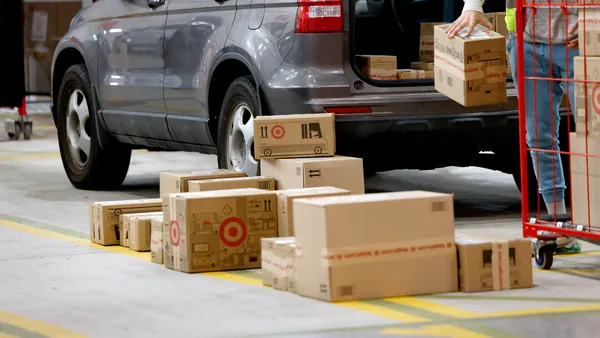Dive Brief:
- JD Logistics is deploying delivery staff, autonomous shuttles and drones to deliver medical and commercial cargo throughout coronavirus quarantine zones in Wuhan and Hubei Province in China, the company said Thursday.
- Customers in the region have been ordering goods online as a means of minimizing human contact in stores, the company said in a release. As a result, the company's autonomous warehouses have fulfilled nearly double their usual number of daily orders, from 600,000 to 1 million between Jan. 24 and Feb. 2.
- In addition to running deliveries, the company has offered discounts and support services to 250,000 affected shippers on its platform including "expense reduction, financial and logistics support, traffic support, technical support [and] health protection." Those located in Hubei province specifically will be eligible to have one month service and operations fees waived, and additional insurance worth up to $42,885 (300,000 Chinese yuan).
Dive Insight:
The coronavirus outbreak has caused elongated factory shutdowns and regional quarantine measures have begun to affect the supply chains of multiple global companies. Manufacturing shortages and logistics challenges are affecting China's domestic networks as well. Reports have surfaced of medical and food supply shortages.
#JD courier Wang Heng shares his experience delivering through the #coronavirus and how being able to buy from JD gives customers peace of mind during this time #delivertrust @onlyyoontv @cnbc https://t.co/B2bUZi92Lj
— JD.com (@JD_Corporate) February 6, 2020
JD Logistics opened a dedicated workstream for delivering food supplies and medical gear in the region on Jan. 25. Since then, it has delivered over "2.36 million medical and epidemic prevention supplies, including masks, medical gloves, goggles, disinfectants" and other items to major hospitals in Wuhan, Huanggang and throughout Hubei Province.
The company has "tens of thousands" of employees working in the area, according to a press release. JD Logistics has provided them with masks, body suits and other emergency safety gear. In addition, it is regularly disinfecting warehouses and delivery vehicles to prevent the spread of the disease.
JD uses its automated cargo shuttle and drone delivery technologies to transport goods while minimizing human contact. Once the vehicle reaches its destination, it transmits a code to a customer's cellphone, allowing the customer to retrieve it.
JD has typically used the shuttles to transport small and medium parcels, though it's using the shuttles to deliver bulkier medical packages as part of its response efforts. The company said in a release that it plans to expand its autonomous shuttle fleet with larger cargo-carrying capacity to serve Wuhan in the future.
Unlike natural disasters that can destroy infrastructure, cut power supplies or blockade access to parts of a city, the quarantine measures have severely cut down traffic in quarantined areas of China, clearing a path for JD to deliver supplies. Mitigating the risk of workers getting infected is paramount.
The logistics of getting supplies to and through the province remains the broader challenge for supply chain managers, as analysts expect that even once factories are up and running again, the severe curtailing of flights and cargo vessels will create choke points, slowing down the transit of goods.














